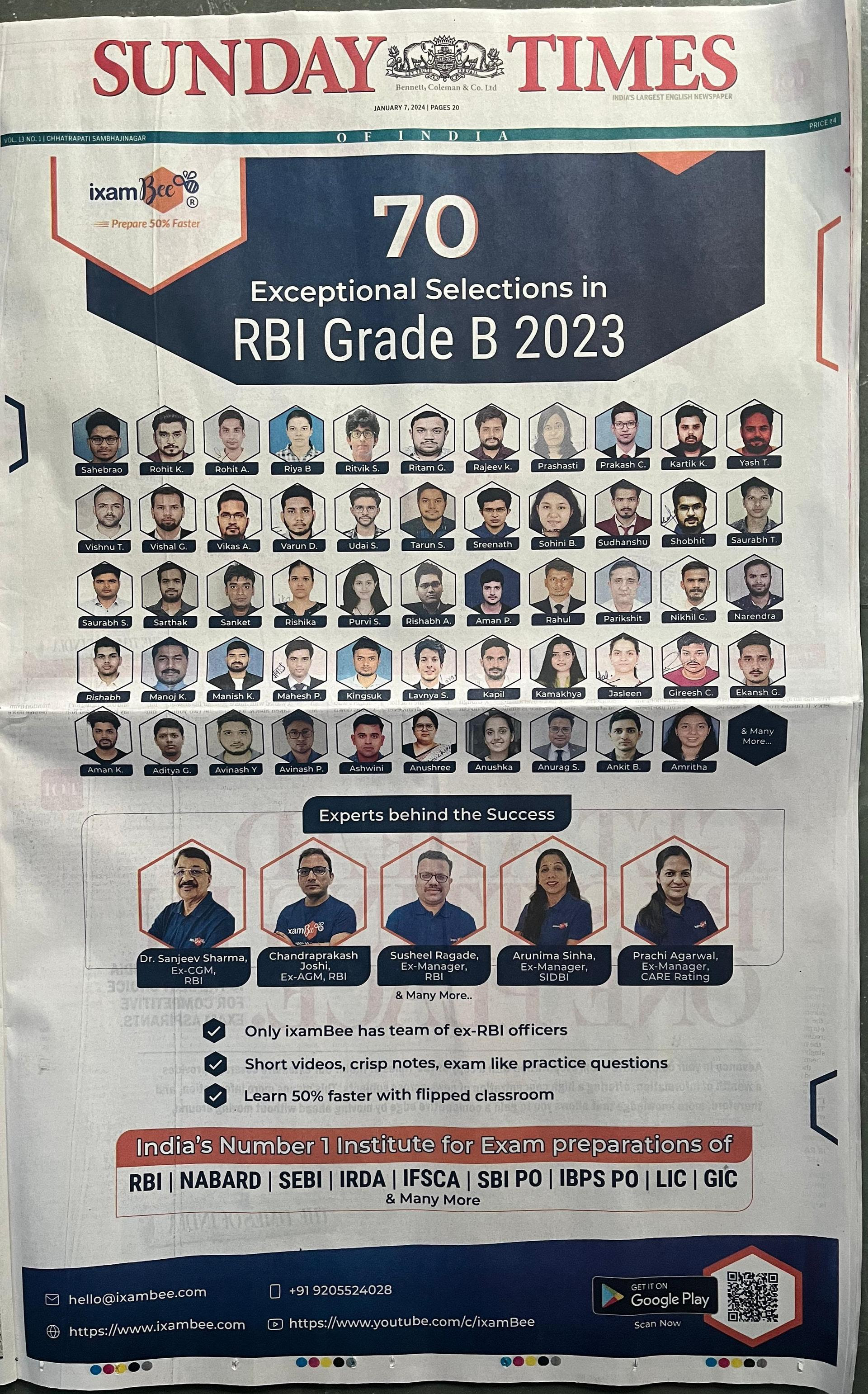Embarking on a career in the banking sector is akin to navigating a maze, and for aspirants, choosing the right path is crucial. The Reserve Bank of India (RBI) Grade B Exam stands tall among its peers, but how does it fare against other bank exams? In this exploration, we'll delve into the intricacies, using everyday language to unravel the distinctions that can guide you in making a well-informed decision.

Eligibility Criteria:
Let's start with the basics – eligibility criteria. We all know that for the RBI Grade B Exam, a solid academic background with a minimum of 60% in graduation is a prerequisite. On the flip side, other bank exams may throw in a mix of age requirements, work experience, and specific percentage criteria, creating a diverse landscape for aspiring candidates.
Exam Pattern:
The structure of the examination is the heartbeat of any competitive process. It's commonly known that the RBI Grade B Syllabus – Phase I, Phase II, and an interview. Phase I kicks off with objective questions covering general awareness, English language, quantitative aptitude, and reasoning. Phase II throws in a mix of objective and descriptive questions, focusing on finance and management. Meanwhile, other bank exams might follow a different rhythm, with preliminary and mains phases that keep candidates on their toes.
Difficulty Level:
Addressing the elephant in the room – the difficulty level. We know that the RBI Grade B Exam often raises the bar, challenging candidates not just on knowledge but on their analytical and decision-making prowess. On the flip side, other bank exams may present a more approachable level of difficulty, opening the doors to a wider array of candidates seeking a shot at a banking career.
Job Profile and Roles:
Peering into the professional realm, understanding the job profile and roles is crucial. For instance, acing the RBI Grade B Exam lands you roles like Officers in Grade B (DR) – General, DEPR, and DSIM, each carrying distinct responsibilities. Conversely, other bank exams may usher candidates into roles such as Probationary Officers, Clerks, and Specialist Officers, each with its own set of tasks and challenges.
Salary and Perks:
Let's talk numbers – the salary and perks. It's a known fact that RBI Grade B Officers enjoy an enticing pay scale coupled with allowances like DA and HRA. Other bank exams also promise competitive salaries, but the perks may take different forms based on the bank and the specific position.
Career Progression:
The climb up the career ladder is a universal aspiration. We know that the RBI Grade B Officers enjoy promising prospects within the central banking system, with avenues for training and development paving the way for promotions. Other bank exams, too, offer avenues for progression, but the speed and trajectory may differ.
Work Environment:
Considering the ambiance of your workplace is vital for job satisfaction. Working at the Reserve Bank of India involves handling monetary policies, economic research, and financial stability, creating a professional and demanding environment. On the flip side, other banks boast diverse functions, offering a varied work environment from one institution to another.
Geographical Posting:
Addressing the 'where' of postings, we know that RBI Grade B Officers might find themselves posted across regional offices, branches, or even the headquarters. This geographic flexibility is part of the job description. Conversely, other bank exams may offer more localized postings, providing a chance to work within a specific region.
Selection Ratio:
In the realm of competition, it's no secret that the selection ratio for the RBI Grade B Exam is relatively lower compared to other bank exams. The stringent selection process and higher difficulty level contribute to a more exclusive club of successful candidates. Other bank exams, with a higher selection ratio, cast a wider net for potential candidates.
Conclusion:
As you stand at the crossroads of banking exams, the decision-making process is intricate. We've unraveled the distinctions between the RBI Grade B Exam and other bank exams, using everyday language to demystify the nuances. In the end, the choice is yours, and we encourage aspiring bankers to weigh the pros and cons, navigating the labyrinth towards a rewarding and fulfilling banking career.


